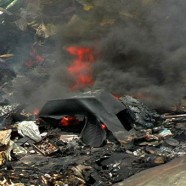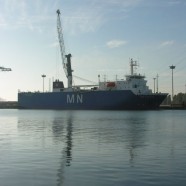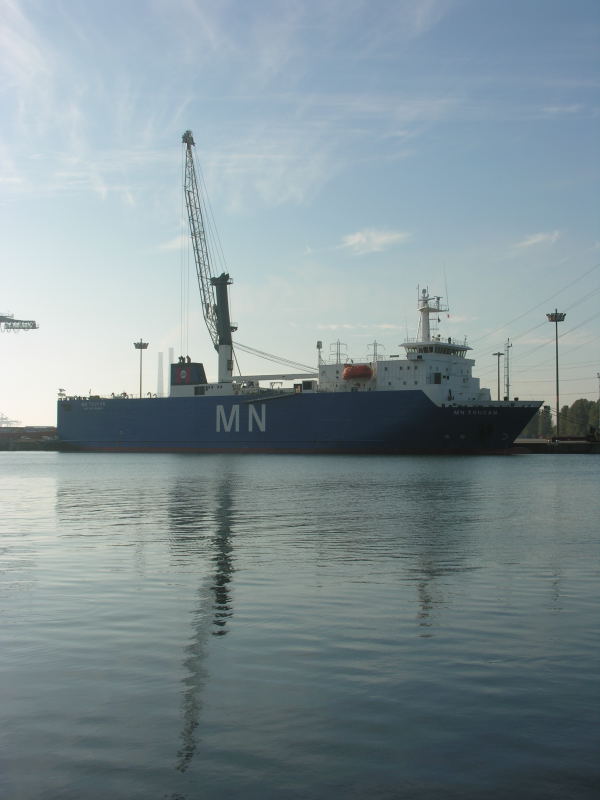(Français) La collecte sélective des déchets électriques et électroniques est une mesure de salubrité publique
Wastes returning to Europe
Business Continues for the Probo Koala
You have been well-informed of it (see invitation for press conference held September 25, 2006 in Abidjan): the Probo Koala was sold by the Greek ship owner Prime Marine Management at the same time as other OBO carriers (transporters of mineral compounds, bulk, petroleum).
The sales contract of 6 OBO was assessed at 136 million US$. It is deplorable that the profit from the sale of the Probo Koala will not be given to the Côte d’Ivoire for the purpose of partially contributing to reparations for damages inflicted on the Abidjan population and to costs of cleaning waste dumped at dozens of sites around and within the heart of the city of the Côte d’Ivoire. Sold along with the Probo Koala were the Probo Bear, Probo Elk, Probo Emu, and Probo Panda (which has nothing to do with the WWF) sailing under the Marshall Islands flag, while the Probo Koala sails under Panamanian flag.
Ivory Coast Waste: Return to Sender
Subject : Ivory Coast/Toxic wastes
The toxic wastes spread on the Ivory Coast August 19-20, 2006 are in the course of recovery, packaging, and gathering, as observed by Robin des Bois in Abidjan. Given that these wastes were dumped over one month ago, the dredging of deposits will generate a final quantity greater than the initial quantity, approximately 500 tons. It is essential, in order to allay the inquietude of the Abidjan populations, that the collection of waste leave the Ivory Coast and return to their point of departure, namely Europe (see press release “Call for a waste charter” from September 12, 2006). There is neither in the Netherlands nor in Estonia a facility capable of thermal treatment elimination of these wastes, declared as ship-generated wastes which should have been discharged in ports of Amsterdam or Paldiski. These facilities are available in various European countries such as Finland, Germany, Belgium, and France. Whatever treatment site or sites are chosen after confirmation of different conflicting analyses, a public information session must be organized to avoid the phenomenon of rejection that was seen in 1988 when waste fraudulently stored in Nigeria were returned to Europe aboard the Karin B (see Robin des Bois’s press dossier from the Abidjan conference, “The first wave and the ebbtide” or the article about the Karin B in la Flèche et le Marin).
Notice #4: Toxic wastes in the Ivory Coast and fires of repetition in France
Mr. Claude Dauphin, held in the Ivory Coast under investigation of toxic discharges from the Probo Koala, is a leader of Trafigura (see preceding notice). He is known as a follower of Marc Rich (see article “The Rich Boys” in Business Week’s July 18, 2005 edition and the Robin des Bois’s press release “My pollueur is Rich” from January 29, 2003). He began his international career in London as a broker of oil products. Under his name, he developed the GDE—Guy Dauphin Environment—a familial society for the recycling of metals and batteries. The society’s historic site is based near Caen, Normandy, and its parent company is the Ecore group.
Notice #3: French businessmen stuck in Abidjan’s toxic mixture
Claude Dauphin, principal shareholder of Guy Dauphin Environment, which is known in France and abroad as a booming development in the field of recycling but poorly controlled in regards to environmental issues, would also be one of the leaders of the Trafigura holding company. Trafigura is the holding company under Dutch law which chartered the Probo Koala (Panamanian flag, Greek shipowner), the ship responsible for the pollution of the Ivory Coast. Claude Dauphin was, in addition, the creator of a London society for the brokerage of oil products and wastes, Ecore, today owned by Trafigura. Once again it is demonstrated that recycling procedures and dealing of oil waste in this specific case are absolutely not controlled by the European states.
Notice #2: Ivory Coast Pollution
Subject : Ivory Coast/Toxic wastes
The belated and muddled accounts of multinational Trafigura, broker of oil products whose parent company is based in the Netherlands, intend to conceal the terrible truth. Trafigura delivered the non complying waste to the operator Amsterdam Port Services (APS), refused to pay the treatment surcharge, and did not respect the European Parliament and Counsel’s directive on port facilities receiving ship-generated wastes and cargo residues. With the complicity of environmental authorities at the Amsterdam port, the ship unloaded and reloaded its wastes, and continued to the Estonian port of Paldiski, where the residues were still not discharged. The logistics coordinator from Trafigura selected the Abidjan port as the final receptacle of these wastes. Certainly Abidjan’s financial conditions for reception are markedly more advantageous than those of Amsterdam, but elimination conditions there are also distinctly inferior, especially when cleaning and cargo residues contain thiol, hydrogen sulfide, and sodium hydroxide.












